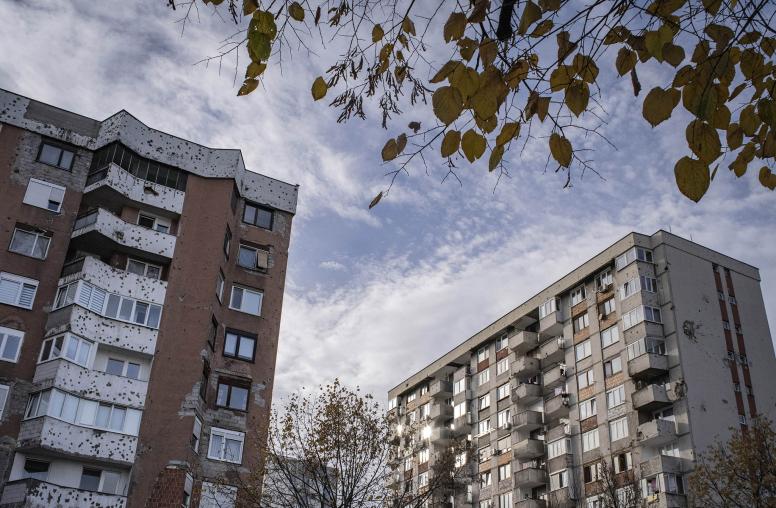Islam & Democracy
Image on right: An election banner in the Spring 2000 Iranian elections reads: "Obtaining Women's Rights, Freedom of Thought, and Social Justice." (Photo by Jon B. Alterman. Translation courtesy of Jon B. Alterman and Bernard Lynch.)
 A joint symposium co-sponsored by the U.S. Institute of Peace and the Center for the Study of Islam & Democracy, a special panel of experts examined the following issues:
A joint symposium co-sponsored by the U.S. Institute of Peace and the Center for the Study of Islam & Democracy, a special panel of experts examined the following issues:
- The compatibility of Islam with democratic principles;
- Human rights and Islam;
- What the U.S. can do to promote democracy in the Muslim world; and
- Problems confronted by democratic movements in the Muslim world.
Co-Chaired by Religion & Peacemaking Initiative Director David Smock and Executive Director for the Center for the Study of Islam & Democracy Radwan Masmoudi, the presentation was webcast live on June 18 and included questions from the floor and the Internet audience.
- Muqtedar Khan
Adrian College - Mahmood Monshipouri
Quinnipiac University - Neil Hicks
Lawyer's Committee for Human Rights and Former Institute Senior Fellow - Laith Kubba
National Endowment for Democracy
Moderators
- Radwan Masmoudi
Executive Director, Center for the Study of Islam & Democracy - David Smock
Director, Religion & Peacemaking Initiative, U.S. Institute of Peace



